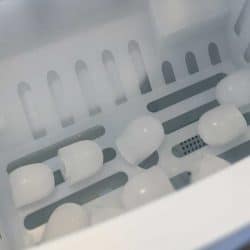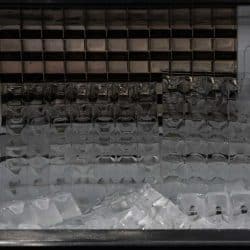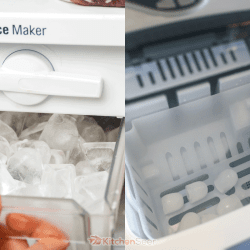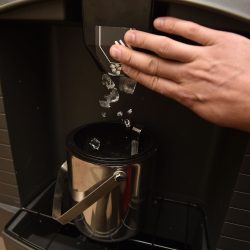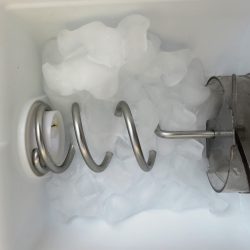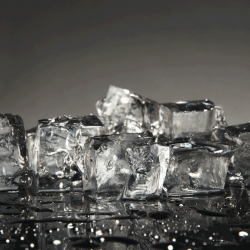If you have an ice maker (whether it's freestanding or built into your freezer), you know that maintaining the proper internal temperature is important. But just exactly at what temperature should it be? We've done the research to bring you the answer.
The best temperature for an ice maker is between 70 degrees, air and 50 degrees, water. By this, we mean that the air surrounding the ice maker is ideally 70 degrees. The water within the ice maker should be 50 degrees.
Continue reading to learn more about whether the temperature of a freezer affects the ice maker and situations to turn your ice maker off. We'll also explore the reasons why your ice maker is not making very much ice, how to tell if your ice maker is bad, and answer why the bottom of your ice maker is hot. Stay with us!
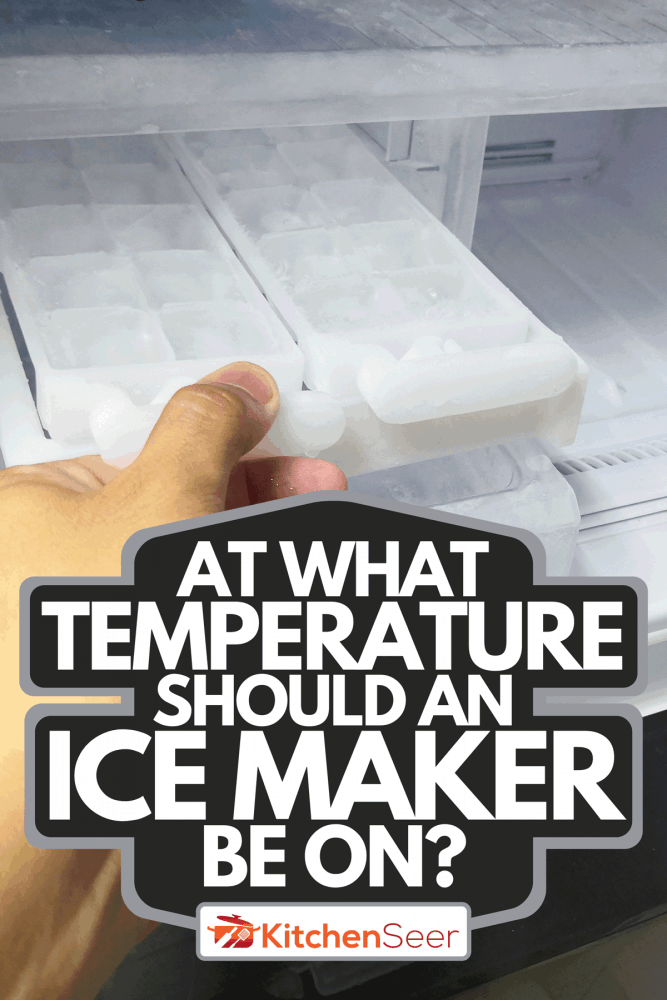
The Ideal Temperature for Ice Makers
Seventy degrees is the optimal temperature for the air surrounding an ice maker. This is because a large appliance such as an ice maker will overheat if the air around it is too warm. The warmer the air is, the harder the machine has to work to produce ice.
The ideal temperature for the water within an ice maker is 50 degrees. An ice maker basically takes the process of filling ice cube trays with water, letting them freeze, and then popping them out individually into an automated assembly line.
The machine needs to be ventilated. A fan is installed to suck air into the front of the ice maker then across the condenser. All of these parts work together to make the ice maker function the way it is supposed to.
Home Vs. Industrial Ice Makers
Some ice makers, for the home consumer, are typically built-in inside of a freezer. These are much smaller than industrial machines, which are used at businesses, especially restaurants. You can find ice makers that are built to be on a countertop within the home as well.
Click here to see this on Amazon.
Having an ice maker at home stops you from having to fill your freezer with ice and buy it outside of your home every time you need it. When you have an ice maker built into your refrigerator, it saves you money in the long run, and it is more convenient.
Ice makers that are industrial size and inside of a business are typically stand-alone appliances. These make ice on a much larger scale than the ice makers in a home freezer.
Does the freezer temperature affect the ice maker?
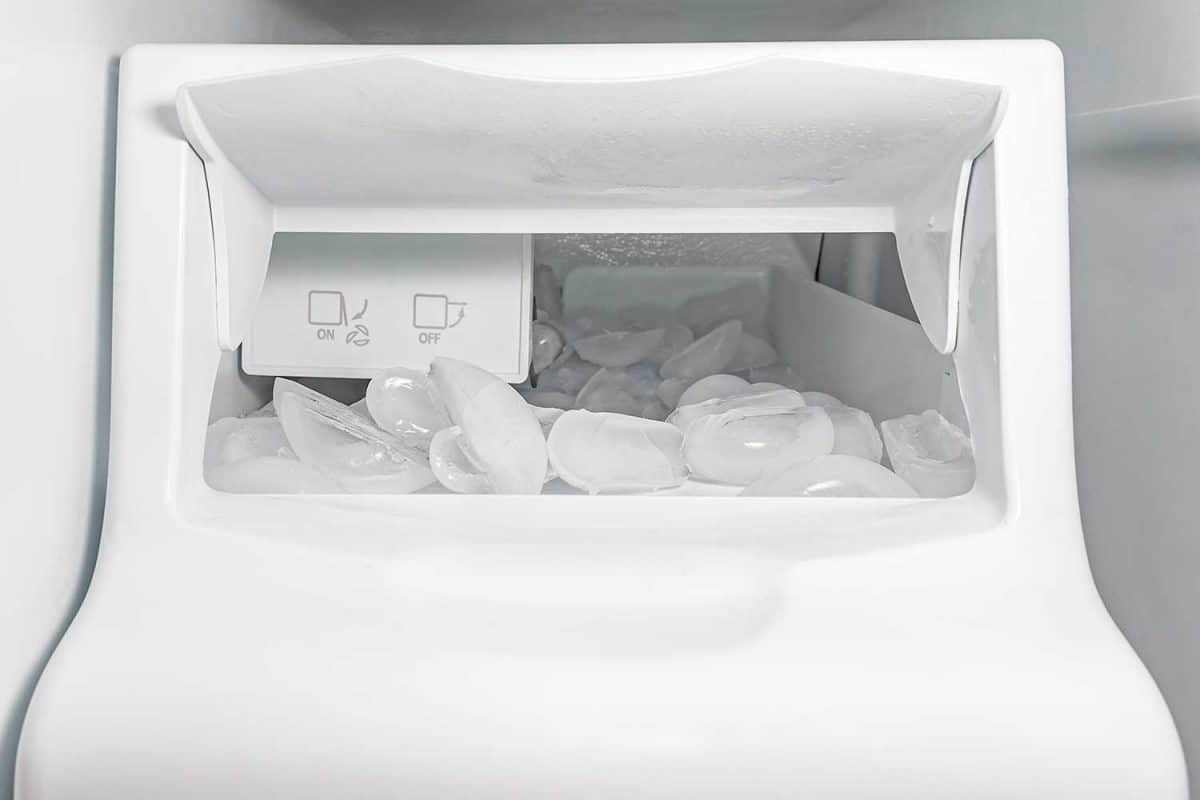
Yes. The freezer temperature is an important factor to consider when talking about ice makers. An ice maker will not work properly if the temperature of the freezer rises above 10° F.
In order to produce ice, the freezer temperature should be between 0° F and 5° F. Problems occur if the ice maker is much warmer than 5° F.
If the pipes in the ice maker freeze, air will not be able to circulate throughout the freezer. This causes the temperature of the freezer to rise, which will in turn thaw whatever is inside.
Should I turn off my ice maker at night?
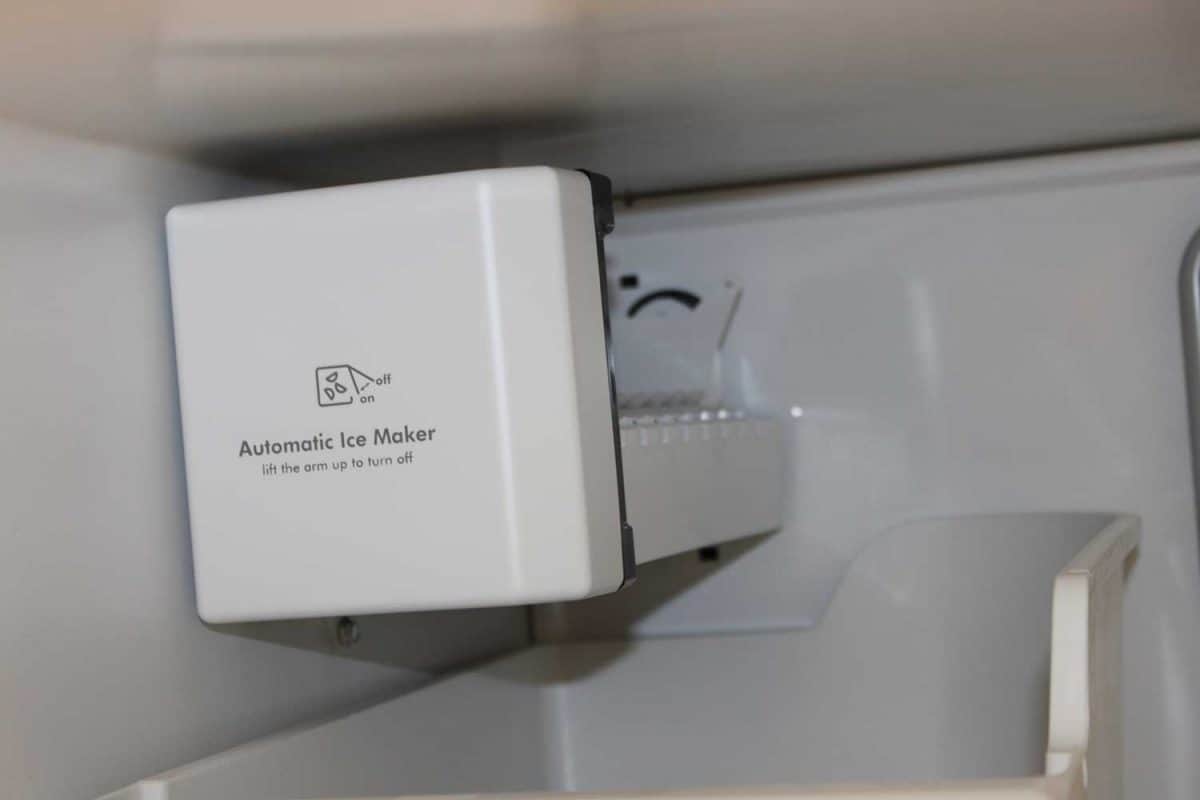
It is not necessary to turn off your ice maker at night. Doing so does, however, result in less electricity being used.
Although you do not need to turn your ice maker off at night, it is not a bad idea to turn off your ice maker if you are going to be out of town for a few weeks or months. It saves energy to have an ice maker shut off.
When to Turn Off Your Ice Maker
The scenario in which you need to turn off your ice maker is when there is no water flowing to it. You might also consider turning off your ice maker and close your water line if flooding is forecast.
Thunderstorms are yet another good reason to turn off your ice maker because lightning can cause surges that then damage your ice machine's electrical components.
The best timing to turn off your ice maker is directly after you hear ice drop into the bin below. If you can catch it at this precise time, you can ensure that the ice mold is empty.
Click here to see this on Amazon.
Why is my ice maker not making very much ice?
There are several reasons your ice maker might not be making very much ice. The temperature of the freezer has to be below 10° F, or the ice maker will not work properly. Let's look at some other potential causes:
Water Pressure
One of the components of an ice maker that has to be maintained is the water pressure. The water pressure should be between 40 and 120 pounds per square inch.
An option for testing the water pressure is by filling a container for 20 seconds. If that container has less than 13 ounces of water in it, the water pressure to your ice maker is likely too low. In this case, first, replace the filter; if the problem is not resolved, then there is another problem.
A Blockage
Another reason your ice maker is not making ice might be because the opening of the dispenser is blocked. Sometimes ice cubes will stick together in a way that the other cubes can not easily break or push through.
Reset or Restart
If your refrigerator is new or its power has been off for a while, it might take a few hours before your ice maker produces ice.
Air Temperature
The temperature of the air should be around 70 degrees. If the room gets too hot, the machine will stop producing ice.
If your ice maker is in a place of business, such as a restaurant kitchen, set it up away from the oven. Central air conditioning will help keep the air cooler so that your appliance does not overheat.
Other Possibilities
Another possible factor contributing to your ice maker not making much ice is that the water supply valve must be turned "on." The fill line can not be kinked or blocked in any way.
Lastly, if the other reasons do not make sense for your situation, the water inlet valve could be defective. If so, you will need to hire a qualified appliance repair technician.
How do I know if my ice maker is bad?
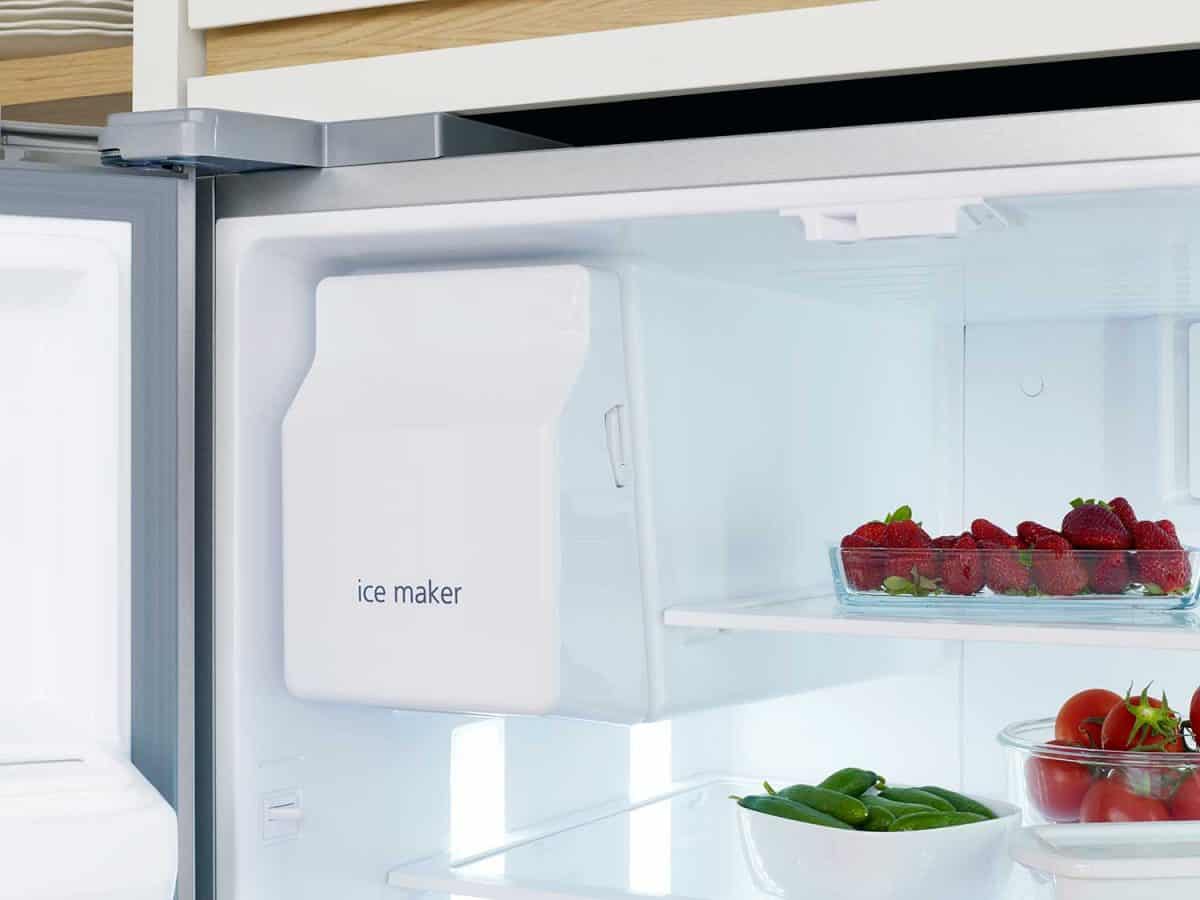
There are a few indicators that your ice maker is bad. If it stops working, that is an obvious indicator. If it is making louder noises than usual, this might also indicate that it is going bad.
The evaporator coils must be kept up with, although, might default to indicate a failing appliance. Additionally, the condenser unit should be routinely inspected to prolong the appliance's longevity. Any potential problems can be maintained by an appliance repair professional.
Why is the bottom of my ice maker hot?
The bottom of your ice maker might be hot because the ice maker may be too close to the wall. Ice makers should be placed six to eight inches away from the wall to be properly ventilated. This is especially important because the machine takes hot air and pushes it out of the back of the ice maker.
Excessive heat will cause the ice within the ice maker to melt. Eventually, this will wear down the machine.
Another reason the bottom of your ice maker is hot is most likely due to the heating element inside. It turns on to melt, slightly, the bottom of the ice cubes that are about to fall through the dispenser.
Does the ice maker stop when full?
Yes, most ice makers are made to shut off when they get full. This is either by way of a mechanical arm or an optical sensor, depending on the machine.
In Closing
The temperature of a freezer affects the ice maker. Air surrounding the machine should be 70 degrees, and the water inside the freezer should be 50 degrees. You should not turn your ice maker off at night.
Your ice maker is not making very much ice due to a few problems such as the water pressure, water inlet valve, or water line. Due to ice makers being made up of many components, you may need to seek professional help if you can not locate the problem yourself.
You know your ice maker is bad when it quits working. There are a few issues you might be able to fix on your own, but most require a trained professional to help resolve.
The bottom of your ice maker is hot most likely because it is not ventilated the way it needs to be. Make sure the machine is six to eight inches away from the wall and away from hot appliances such as an oven.
Ice makers stop producing ice when they are full. They are designed that way. This happens due to an indicator light or a sensor.
Before you go, check out the following links:
How Big Is An Ice Maker Machine?
What Is The Best Container For Homemade Ice Cream?



